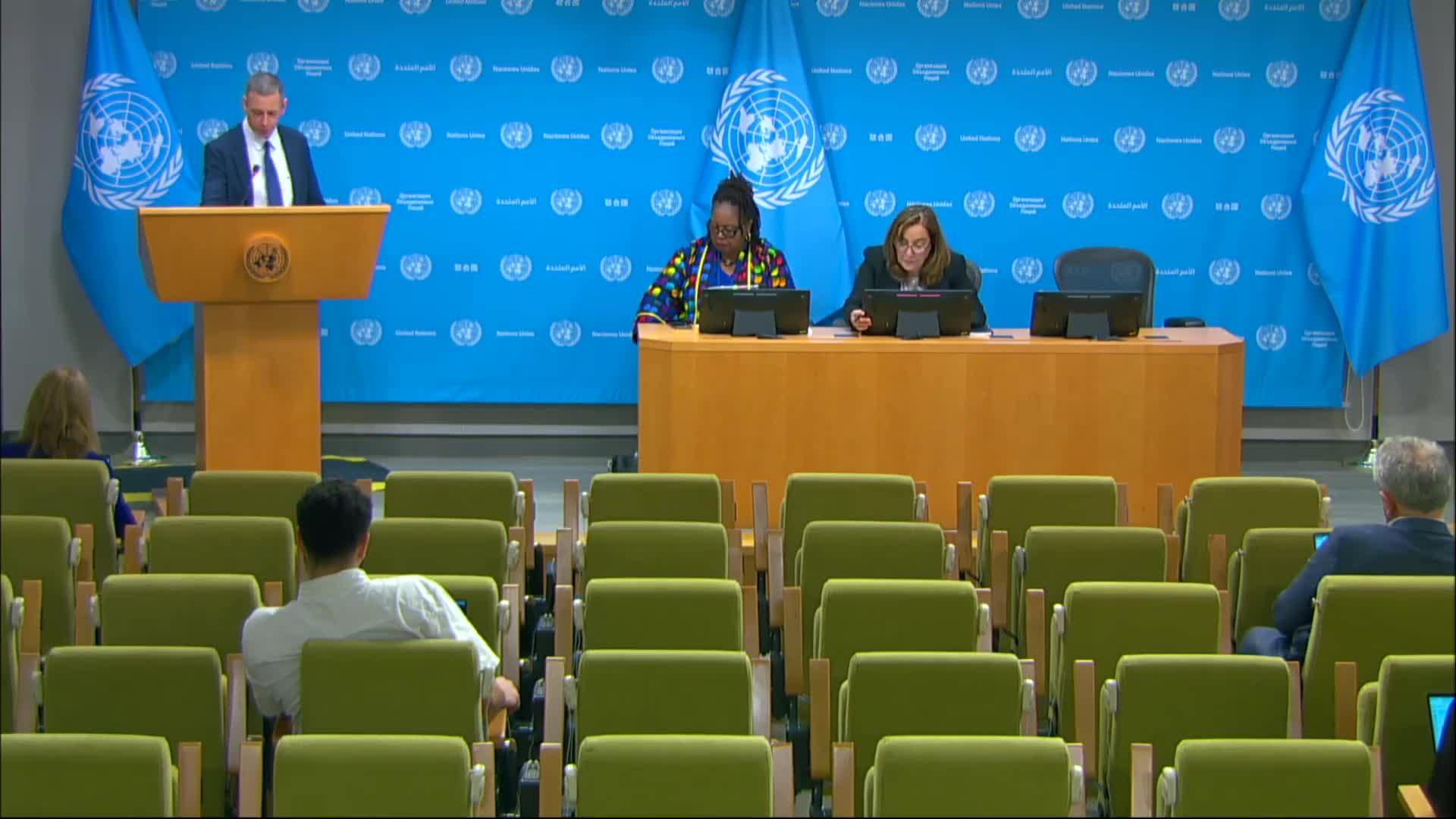U.N. fact-finding mission says Sudan conflict amounts to widespread atrocities, urges ICC jurisdiction and arms embargo
Get AI-powered insights, summaries, and transcripts
Subscribe
Summary
The Independent International Fact-Finding Mission on the Sudan told a U.N. press conference that systematic attacks on civilians, repeated destruction of essential infrastructure and large-scale sexual violence across Sudan amount to crimes against humanity, and that the international community must strengthen accountability and protection measures.
The Independent International Fact-Finding Mission on the Sudan told a U.N. press conference that systematic attacks on civilians, repeated destruction of essential infrastructure and large-scale sexual violence across Sudan amount to crimes against humanity, and that the international community must strengthen accountability and protection measures.
"This war has been waged not only by the armed forces, but more importantly, serious violations of human rights and IHL by the Sudanese Armed Forces and the Rapid Response Forces," said Mona Rishmaue, a member of the mission, listing torture, summary executions, sexual violence and attacks on hospitals, markets and water stations as central findings. She said the Rapid Support Forces and allied militias "laid siege to the city for more than 500 days" before Al Fashir fell this week and that attacks on internally displaced person camps such as Zamzam and Abu Shook have left thousands killed, wounded or displaced.
Joy Ngozi Zello, also a mission member, said the mission's new report, Parts to Justice: Accountability for Atrocities in Sudan, offers a "road map for how justice can be achieved for victims" through four pillars: truth, justice, reparations and institutional reform. The report recommends expanding International Criminal Court jurisdiction over Sudan, establishing "an independent judicial mechanism operating in partnership with the ICC," and creating a victim support and reparations office to provide medical, psychosocial and livelihood assistance.
The mission described a near-total collapse of Sudan's justice institutions and widespread impunity. "Courts deliver selective justice without offering fair trials and adequate protection and effective remedies to victims and survivors," Zello said, adding that the mission concluded Sudan is currently "unwilling and unable to conduct genuine investigation or prosecution for international crimes." The mission urged continued documentation of crimes and the full participation of Sudanese civil society in justice processes.
Journalists asked for casualty figures and for an assessment of sexual violence. Rishmaue said past reporting estimated deaths since April 2023 but declined to offer a definitive total at the press conference, noting that sexual violence is difficult to quantify because it is underreported and that much of what is known comes from medical personnel and survivors. The mission cited displacement figures during the briefing, saying "we are talking of over 11,000,000" people displaced and that more than "25,000,000" are facing acute food insecurity, figures the mission described as indicators of a very large humanitarian crisis.
Reporters also asked whether RSF control of territory risks destruction of evidence and witness elimination. Rishmaue confirmed that in locations such as Geneina last year courts, files and infrastructure were destroyed and that witnesses, lawyers and judges have faced arrest and intimidation. She said evidence is also stored and recorded outside Sudan and that "accountability is going to come," while urging preservation and continued documentation of testimony and records.
On whether internal RSF investigations are credible, Zello said past RSF statements have been opaque and produced no verifiable results. "We have no evidence whatsoever and no confidence whatsoever that it will lead to anything," she said, urging instead unhindered access for independent investigators, the mission and the ICC.
The mission urged states and regional organizations to act together to stop the flow of arms, support targeted sanctions and enforce an arms embargo, and to place victims at the center of peace and accountability efforts. The mission said it is investigating external arms flows and will "name names" where appropriate as part of its mandate to identify perpetrators and complicity.
The mission repeatedly called for protection of civilians and for humanitarian access. It recommended that member states apply universal jurisdiction where appropriate, strengthen cooperation with the ICC, and resource survivor-centered reparations and assistance.
The press conference closed after a final round of questions from reporters. The mission said it will continue to document violations and to pursue recommendations through U.N. mechanisms and cooperation with international courts.
